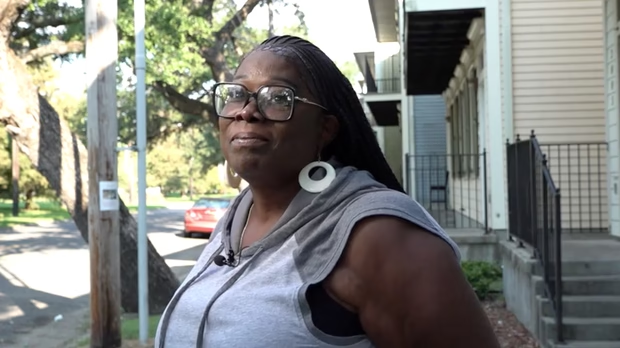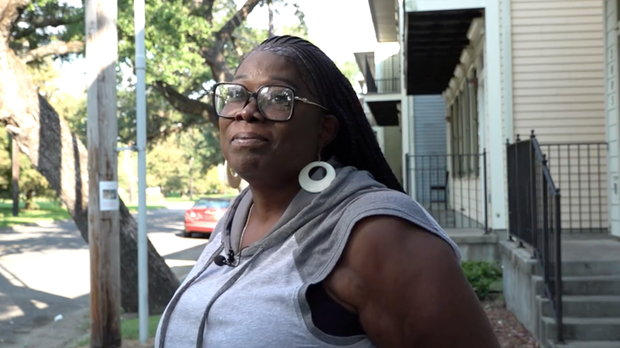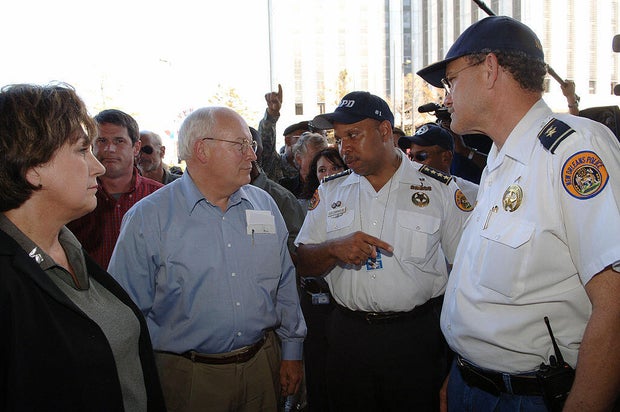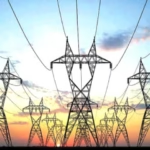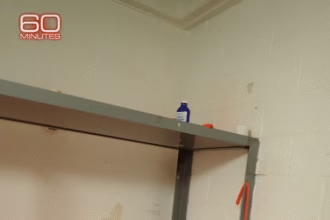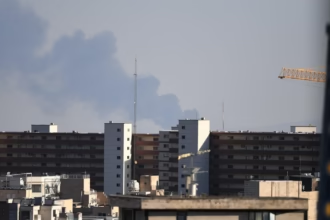Two decades after Hurricane Katrina, survivors can still describe in detail what they faced in the days after the storm devastated the Gulf Coast.
In New Orleans, many initially thought they had escaped the worst, that is, until the storm surge overwhelmed the levees, breaking the city’s floodwalls. As the days went on, the situation became worse and worse.
Hurricane Katrina led to nearly 1,400 deaths, displaced more than a million people and left hundreds of billions of dollars in damage across the Gulf Coast.
While the recovery has varied, some people who made it back to New Orleans have found hope in the city they love.
“A blessing in disguise”
For Toranzette Andrews, losing everything in Hurricane Katrina opened an opportunity for a fresh start.
Andrews and her family weren’t able to evacuate New Orleans before the Category 3 hurricane hit.
“We’re not able to just get up and just go,” she told CBS News on Aug. 30, 2005, after escaping rising waters with her mom, her young kids, her sister and her sister’s children. “We don’t have transportation. I mean, we’re living paycheck-to-paycheck.”
She and her sister had tied shoestrings to their kids to wade through the flooding. Once they made it to the interstate, one of the few places of dry ground in the city, they became stranded like thousands of others.
“We stayed on the bridge and that sun started beaming,” she recalled in an interview with CBS News this week. “I remember it like it was yesterday.”
CBS News
She didn’t know if anyone was coming to evacuate them or what their next step would be.
But after speaking with the media, “within about 15 minutes, an Army truck pulled up, took my family off that bridge and brought us to the Conventions Center,” she said.
Andrews and her family ended up in Houston, Texas, where they found an apartment, got jobs and stayed for 16 years while her kids finished school, she said.
Then they came back to New Orleans.
“Right now, in my present life, I’m not where I wanna be, but I’m better than I was,” Andrews said. “It was really a blessing in disguise and it gave us a little bit more opportunity.”
She said the hurricane made her stronger and more resilient.
“If you went through Hurricane Katrina, you could survive anything,” she said. “Some of us left with only the clothes on our back. Some of us didn’t even much have identification. Some of us didn’t even much have a bronze penny in our pocket. So if you survived that, all those years ago up to now, you can survive anything.”
“Hopefully they know we’re still here”
As water rose throughout New Orleans, Charity Hospital’s basement started flooding. Then, because the electrical equipment was in the basement, the power went out.
While the flooding made it difficult for any new patients to get to the hospital, doctors worked to keep the ones already there alive.
“We’ve got a number of patients still on ventilators, we’ve got patients that need dialysis,” Dr. Alan Marr, a surgeon, told CBS News on Sept. 1, 2005.
In an interview with CBS News this week, Marr recalled hauling portable diesel-powered generators up 12 flights of stairs, switching patients to ventilators powered by oxygen instead of electricity, and eating “a lot of beans” since the cafeteria and any fresh or frozen food were in the basement.
“It was bare bones, but we had enough to do what we had to do,” he said.
But with communications down across the city, state officials thought the hospital had already been evacuated.
“We’re listening to the radio, and we heard them report that everybody at Charity Hospital had been evacuated,” Marr said. “We’re sitting there looking at our patients, going, ‘No, we haven’t. We’re here. Don’t leave.'”
“That was the governor that was reporting this, so it was like, hopefully they know we’re still here,” he said.
It took about five days before they could evacuate all the patients. And while Marr called that week and the recovery afterward one of the most difficult and challenging periods of his life, he said he learned lessons about leadership and about taking care of your people.
“I came to New Orleans to make a difference, and when this occurred, I realized that more than ever, people needed to step up and help us recover,” he said. “And I felt like I would be a bit of a hypocrite if I, you know, ran at the first sight of a bad time.”
It took another 10 years before Charity had a new replacement hospital, he said. Now with new partnerships, he’s hopeful for a future health care system to help more patients.
“I’m happy I stayed,” he said.
“Numb to a lot of the pain and suffering”
Eddie Compass, who was the superintendent of the New Orleans Police Department when Katrina hit, still has scars — physically and emotionally — from the days that followed the hurricane.
Facing a city that was 80% underwater, downed communications, and little outside support, Compass said the police and fire departments tried to initiate rescue missions and help people taking shelter at the Superdome, which had gone from a safe haven to a nightmare.
The restroom facilities were overwhelmed, food and water were running low and the lights went out in parts of the dome. And across the city, roads were impassable without boats.
“I mean, it was overwhelming to a certain extent,” he said. “Plus, I wasn’t getting any sleep. I didn’t sleep for the first three days.”
Compass’ exhaustion was evident. In a clip that aired on “CBS Evening News” on Sept. 2, 2005, Compass pleaded for help for his police officers.
“We have people … who have lost their families and they have not gotten out of this fight,” he said. “I’m so tired of this, but it’s finally almost over.”
Walking off camera, he said, “That’s it. I don’t want to talk no more.”
AFP via Getty Images
Twenty years later, Compass acknowledged that he broke down at times amid the chaos Katrina brought.
“The few times I broke down, I broke down because of my heart and my love for my city, and when I watched people that I love, and people I know die, it affected me,” he said.
Compass wasn’t exempt from personal loss — his elderly aunt and uncle died because they didn’t have help evacuating, and he said an officer in his command died by suicide.
“Every day, that haunts me,” he said.
He also had a fall that damaged his hips so much that he needed a double hip replacement years later. Compass pointed to the scars on his legs that still remain from all of the cuts and injuries he sustained while working to help people stranded by the storm.
“People have no idea the personal pain that I was in during Katrina,” he said. “I became numb to a lot of the pain and suffering because I had to help the people that were living.”
He recalled a moment when he was helping people get on a bus to evacuate, and one man wheeled a motionless person in a wheelchair over to him, wondering what to do next. He thought the person in the wheelchair needed medical help, but quickly realized she had already died.
“I took a blanket and I put it over her and just rolled it in the corner,” he recalled. “I couldn’t mourn her. I couldn’t worry about her, because there’s so many other people that needed my help and attention, and that was so frustrating to me at those moments, but I had to block it out.”
During the first five days after the storm, media attention focused on crime and looting in the city. However, much of the looting occurred because people had no other means of access to food and water. They had no homes and many people didn’t have identification.
“The people were hungry,” Compass said. “People needed help.”
Some people were shot by police or by vigilantes. Compass maintains he never gave an order to shoot alleged looters.
“I never called for martial law. I couldn’t,” he said.
After Katrina, Compass said he was fired from the police department over political disagreements.
“It was very emotionally trying because I did my job and my word wasn’t taken,” Compass said. But, he says, “God moved me in another direction.”
Compass worked for the state school system for 10 years and developed programs to help underserved children in Louisiana. He now works as a personal trainer and freelance bodyguard. Nearing retirement age, he’s looking forward to spending more time with family.
Asked what lessons learned should be shared with other cities for the future, he said he thinks most cities are more prepared now than New Orleans was in 2005.
“We were the guinea pig. We were the prototype of, you know, how to handle it when it happens, but it’s a situation that we made a lot of mistakes, but we did a lot of good things,” he said. “We saved a lot of lives as a police department and a fire department, and a lot of people really lost sight of that fact, that we started those boat missions before any help came from anywhere.”


